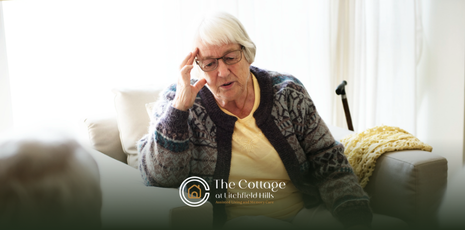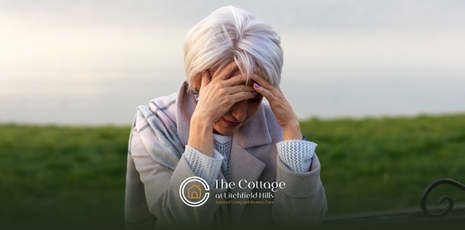What Is "Sundowning" in Dementia?

Sundowning is a common symptom of dementia where confusion, anxiety, agitation, or aggression worsen in the late afternoon or evening. It typically occurs in individuals with Alzheimer’s or other types of dementia.
This behavior may include pacing, yelling, restlessness, or resistance to redirection. The exact cause isn’t fully understood, but it may be linked to changes in the internal body clock, low lighting, or fatigue at the end of the day.
Caregivers can help manage sundowning by maintaining a regular routine, reducing evening stimulation, improving lighting, and creating a calm environment. In some cases, medical intervention may be necessary.
Recognizing and addressing sundowning early can greatly improve quality of life for both the individual and their caregivers.
For those needing specialized memory care, The Cottage at Litchfield Hills offers support in managing symptoms like sundowning with compassion and expertise.
Frequently Asked Questions
When does sundowning typically occur?
It usually begins in the late afternoon or early evening.
Is sundowning permanent?
Sundowning can fluctuate and may improve with routine and care.
Can sundowning be treated?
Yes, through environmental changes, routine, and sometimes medication.
Sources:
- https://www.alzheimers.org.uk/about-dementia/stages-and-symptoms/dementia-symptoms/sundowning
- https://www.alz.org/help-support/caregiving/stages-behaviors/sleep-issues-sundowning






